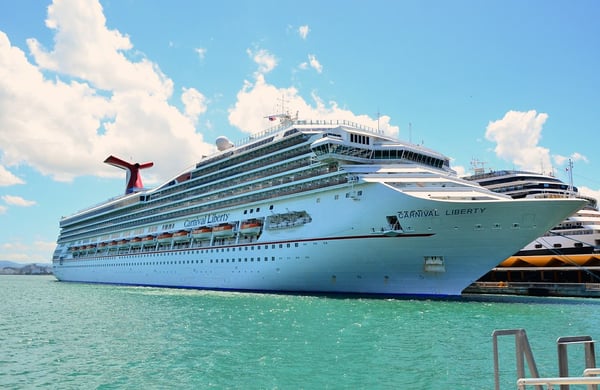

The Jones Act, also known as the Merchant Marine Act of 1920, is an old federal law that protects injured “seamen” or offshore workers like cruise ship employees after on-the-job injuries. Unlike land-based on-the-job injuries where workers are protected under worker’s compensation laws, seamen are protected under the Jones Act and are entitled to special privileges.
Can You File a Claim Under the Jones Act for COVID-19?
The short answer is, yes. There are two types of Jones Act claims that can be made in this instance, a negligence claim and unseaworthiness claim. (Typically there are three types of claims that may be brought about under the Jones Act: negligence claims, unseaworthiness claims, and maintenance and cure. For a complete overview of the Jones Act, click here).
Coronavirus & Negligence Under the Jones Act
A cruise ship worker who contracts the COVID-19 disease caused by the novel Coronavirus may have a Jones Act claim for negligence. In regards to the Jones Act, one could say injury and illness are synonymous in this instance since contracting COVID-19 can lead to serious respiratory complications and in many cases has resulted in death. Ill seamen may have a negligence claim if their injury or illness resulted from a careless or negligent act by their employer or coworker - such as the mismanagement of the COVID-19 outbreak.
Perhaps the most notable concern amidst this pandemic has been the leadership aboard cruise ships, or better said, the lack thereof. As passengers and crew members alike begin to arraign and indict the directives of their captains on social media outlets such as TikTok and Instagram, it becomes clear that cruise ships are facing the pandemic without lucidity or transparency. This mismanagement has left many cruise ship workers vulnerable and endangered, a prime case for negligence but also “unseaworthiness”.
Coronavirus & Unseaworthiness Under the Jones Act
Shipowners can be held liable for unsafe vessel conditions. This is also known as “unseaworthiness”. Unseaworthiness under the Jones Act essentially means that a ship and its equipment must be safe and fit for the intended purpose. A cruise ship housing a passenger or crew member who has tested positive for COVID-19 would be considered unseaworthy, as the conditions aboard can be deemed as unsafe. Furthermore, if the ship or its equipment is not fit for its intended purpose, it's called strict liability - meaning the vessel owner is responsible for the crew’s safety.
The coronavirus pandemic has certainly created an alarming shortage of Personal Protective Equipment (PPE) needed to protect healthcare workers and reduce the spread of the virus. As even major hospitals struggle to acquire the much needed N95 masks, crew members aboard cruise lines like the Costa Luminosa have been seen wearing makeshift masks using napkins to cover their mouths like a bandana. As cruise lines continue to blunder their poorly improvised response to the Coronavirus, cruise line workers are forced to continue operating under unsafe working conditions. A prime example of “unseaworthiness”.
What Can Be Done?
If you are a crew member aboard a cruise line who’s been diagnosed with COVID-19 it is important that you contact an experienced maritime attorney to weigh your options as soon as possible. Our law firm has decades of experience battling maritime companies. Call 713-224-7800 or click here to contact us.
Topics: Jones Act

